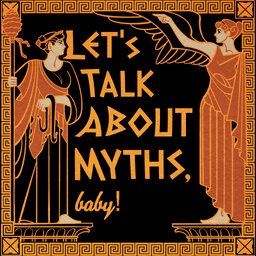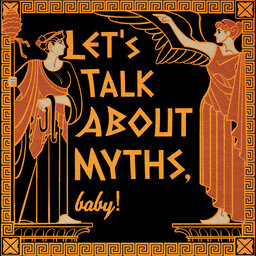Beware the Wrath of the Furies, Screaming for Blood, Euripides’ Orestes (Part 1)
This play takes place after the end of the Trojan War and after the death of Agamemnon. While there's a recap in the episode, you can listen to the full story in this Spotify playlist. Help keep LTAMB going by subscribing to Liv's Patreon for bonus content!
CW/TW: far too many Greek myths involve assault. Given it's fiction, and typically involves gods and/or monsters, I'm not as deferential as I would be were I referencing the real thing.
Sources: Euripides' Orestes, translations by Anne Carson (main reference and short quotes throughout); EP Coleridge (long quotes and intro quote); Euripides by Isabelle Torrance. Re: that misspoken line by Hegelochus, Wikipedia's description and the scholia itself.
Attributions and licensing information for music used in the podcast can be found here: mythsbaby.com/sources-attributions.
 Let's Talk About Myths, Baby! Greek & Roman Mythology Retold
Let's Talk About Myths, Baby! Greek & Roman Mythology Retold


